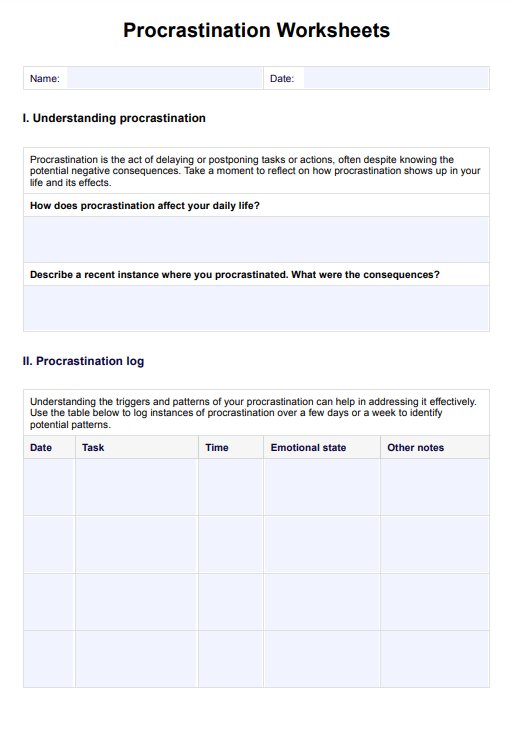Procrastination activity worksheets provide a structured approach to understanding procrastination and addressing its root causes. They include reflection exercises, reading passages, and actionable strategies to improve task initiation and help individuals stop procrastination. By identifying triggers, breaking down tasks, and setting achievable goals, these worksheets encourage the development of healthier habits and support long-term progress.

Procrastination Worksheets PDF
Help clients access a practical tool for better time management and productivity with our Procrastination Worksheets.
Procrastination Worksheets PDF Template
Commonly asked questions
Chronic procrastination can result in heightened stress levels, contributing to physical health issues like headaches, fatigue, or weakened immunity. Procrastination Worksheets help mitigate these risks by promoting better self-regulation and time management. Through guided exercises and focusing on task prioritization, individuals can reduce stress and regain control over their responsibilities, improving mental and physical well-being.
How can procrastination activity worksheets help students stay on track?
Students often procrastinate due to difficulty managing tasks or understanding their priorities. Procrastination activity worksheets are particularly helpful for students by fostering reflection on why people procrastinate and providing tools to align their actions with their intended course. Through task breakdowns, time management exercises, and reading passages, students learn how to stay organized, improve task initiation, and develop habits that support long-term success.
EHR and practice management software
Get started for free
*No credit card required
Free
$0/usd
Unlimited clients
Telehealth
1GB of storage
Client portal text
Automated billing and online payments











